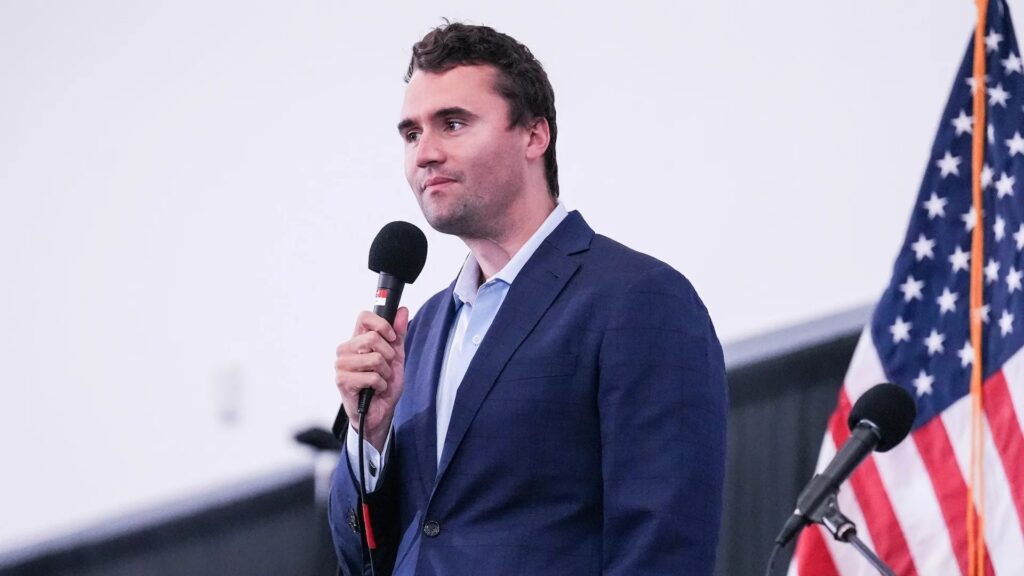Charlie Kirk, the 31-year-old conservative activist and co-founder of Turning Point USA, was fatally shot during a public speaking event at Utah Valley University in Orem, Utah. The tragic incident has left the campus and political community in shock, prompting heightened discussions about political violence and safety for public figures.
The shooting occurred around midday during a Q&A session attended by thousands of students, staff, and guests. Kirk was struck by a bullet, causing immediate collapse. Emergency responders rushed him to a nearby hospital, but he was pronounced dead shortly after arrival.
Authorities believe the gunman fired from a nearby rooftop using a high-powered rifle. The suspect fled the scene on foot, initiating an extensive manhunt that mobilized local and federal law enforcement. After several days, the suspect was apprehended, ending a tense search and raising questions about security at public events.
The Charlie Kirk shooting Utah has sparked widespread concern over the safety of public figures, particularly in politically charged environments. Law enforcement agencies are reviewing security protocols and investigating how the gunman gained access to the vantage point used in the attack.
Kirk’s death has generated national attention, with reactions from across the political spectrum. Leaders, commentators, and the public have condemned the attack, emphasizing that violence has no place in American civic life. The incident has also reignited discussions about political polarization, radicalization, and the need for effective preventive measures to protect public events.
The campus community has been deeply affected. Students, faculty, and staff have organized vigils and memorials to honor Kirk’s memory. Many describe him as a dedicated activist who inspired discussion and engagement on political issues. The college has increased its security presence and offered counseling services to help the community cope with the trauma.
Experts note that this tragedy reflects a broader pattern of politically motivated attacks that have escalated in recent years. Partisan divides, inflammatory rhetoric, and online radicalization are frequently cited as factors that can fuel such violence. The shooting highlights the urgent need for preventive strategies, both on campuses and in public forums.
For ordinary citizens, the shooting underscores the risks of public political engagement in a highly polarized environment. Schools, universities, and event organizers are now reviewing policies to ensure that gatherings are secure, while maintaining accessibility and freedom of expression.
The loss of Charlie Kirk has also triggered national conversations about responsibility in political discourse. Many emphasize that words and rhetoric carry weight, and that public figures, media outlets, and communities all play a role in shaping environments that either discourage or fuel violent acts.
Kirk is survived by his wife and children. Plans for memorial services are underway, and tributes from supporters highlight his influence in conservative circles and his work with youth and student activists. The incident is expected to have long-lasting effects on both his community and the broader political landscape.
Law enforcement continues to investigate the motives and planning behind the shooting. While the suspect is in custody, authorities stress that understanding the factors that led to the attack will be crucial in preventing similar tragedies in the future.
The Charlie Kirk shooting Utah serves as a sobering reminder of the intersection between political polarization and public safety. For the nation, it raises urgent questions about how to protect civic spaces, ensure the security of public figures, and reduce the risk of politically motivated violence.
In the aftermath, conversations are focusing not only on the event itself but also on broader societal implications. Policymakers, law enforcement, and communities are being called upon to examine the conditions that allow such acts to occur and to implement measures that foster both safety and democratic engagement.
While the investigation and mourning continue, Kirk’s death has left a lasting impact on his supporters and on the discourse surrounding political violence in America. The tragedy underscores the importance of vigilance, responsible rhetoric, and the need for communities to work collectively to prevent similar incidents in the future.



